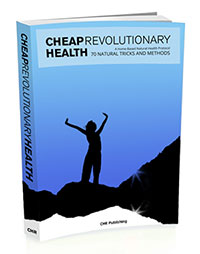What Causes Stress?
We have all heard of the dangers of stress: how it causes physical illness and depression, how it messes up your hormones and reduces sex drive, how it ages us prematurely, etc. Many people, however, seem to feel helpless when it comes to reducing stress - often they feel trapped in a stressful lifestyle. To begin unravelling this dilemma, then, it is important to first understand what is it exactly that causes stress in the first place. The obvious answer would seem to be work, lack of sleep and annoying people... but you will be surprised to find that when some of the less-well-known causes of stress are identified, these more obvious stress factors begin to resolve themselves as well, and we find ourselves on course towards a new, more enjoyable life.

Copyright: Pelagos. To purchase the full-resolution version use the contact form below.
I have given stress a lot of thought in the recent years, because the nutritionists and alternative health professionals I have seen all have diagnosed stress as one of the major underlying causes of my nutritional and health imbalances. This diagnosis has persisted despite my considerable efforts to reduce stress: I have eliminated all types of commitments from my life, endeavoured to live a simpler while enjoying plenty of sleep, and I even gave up work for over 10 months. But still, stress shows up everywhere: in my mineral analysis, my pulse as measured by the Chinese doctor, and it is also evident from my severe stimulant- and sugar-intolerance. Sometimes I suffer from stress-related headaches as explained to me by a chiropractor, and I also get anxious easily and lose sleep, which are both archetypal stress signs.
The chiropractor I saw last month 'prescribed' hot epsom-salt baths for me just before bed. The instructions were not to read or listen to anything while in the bath, stay there at least half an hour, letting the mind wander, and not looking at the computer or mobile phones after the bath but to go straight to bed. The chiropractor reasoned that your mind is like a computer in the sense that if you don't let it close down all the programs (software) in peace, but just press the power button to force it shut, the computer starts slowing down. You have to let you brain process the day's events in peace before you go to bed.
I took this advice seriously and as a result my headaches seem to have lessened a lot.
I also started taking the baths in the dark, in candle light, because I realized that it makes me feel happy and is so beautiful, relaxing and enjoyable. A strange, archaic, deep pleasure comes from being in darkness and in candle-light.
Since I have kept myself very busy throughout my adult years - until recently - I kind of forgot what I enjoyed in life. I was always trying to live very efficiently, and use every moment of the day productively, forcing myself to constantly work towards my goals: future financial security, perfect health, more free time to spend with people I love, etc. The problem, however, has been that every moment of my day has been filled with learning, exercising, saving money, preparing food, or working for money. All the things that I have been doing have been for future goals, and I've forgot to enjoy everyday life.
So I have had to begin re-learning to incorporate enjoyable things into my everyday life. I found that many things that make me happy can actually be done on a low budget: being in nature, light exercise, candle-lit baths, occasionally watching TV programs (I didn't watch TV for some 18 years as it is 'wasted time'), idle time to reflect on my thoughts, reading non-practical text, spending time with other people, having sex, and eating enjoyable foods. Sensory pleasures, intellectual pleasures, appreciating other people and the world, letting go of the need to always help others and/or control life, not being afraid to speak my mind, comedies, music, and all the ways I can allow myself to just do something without a specific purpose and to enjoy life have been a liberating experience.
So to return to our original question - what causes stress - it is anything that you don't enjoy doing in your life. I had personal frustrations weighing on me: not having finished my studies, having a lot of debt, not feeling challenged at work, confusions about my health, etc. and even during my time off from work I was constantly pushing myself to try to perfect my diet and health, start my own business, find sources of side-income, etc. No amount of time away from work was going to eliminate my life's stresses as long as I was carrying many frustrations while still feeling overworked, out of money, and unhappy.
Stress is being frustrated, being bored, being angry and unhappy, doubting yourself, feeling undervalued... Stress is not laughing enough, having to look at a messy apartment, not having time for your own thoughts, or seeing a pile of papers everyday that need organising... Stress is being obliged to watch movies you don't like or to socialize with people you don't identify with... Stress is not liking what you eat, wear, drink, look like, consume, see, hear, etc... Stress is the lack of peace of mind or future goals... Stress feeling that you cannot trust other people or feeling that the world is an evil, dangerous place... Stress is feeling out of control in your own life... Stress is difficult relationships or work environment... Stress is having a computer that is too slow or clothes that are too small... Stress is anything you worry about, negative thoughts, fears, feelings of guilt, not being honest to yourself, feeling unloved, pushing yourself too hard... Stress is doing too many 'left-brain' activities and not enough 'right-brain activities'... And so on.
To reduce stress, start from small things. Start claiming more time for yourself during the day. Don't answer any emails you don't absolutely have to. When you do, answer briefly. Eliminate any tasks from your 'to do' list that are not absolutely necessary. Start eating simple meals that don't take long to prepare and don't make many dishes (see: 'no-stress healthy diet' for ideas). Learn to postpone things to the next day, get your supermarket shopping delivered to your door and schedule a monthly order to automatically renew.
Move to a smaller house or a flat to reduce rent/ mortgage and start working four days per week. Stop 'keeping up with the Joneses', save your money instead and use it for something that you love doing, even if it's not 'cool or trendy'. Make a list of things you do to please other people and drastically reduce these things.
Start scheduling fun things to do for yourself in the evenings or weekends. It is important to schedule ahead of time so that you cannot get out of it. Spend 10 minutes per day getting more organised.
Get a haircut that doesn't need much maintenance. Buy clothes that don't need ironing.
At work, speak briefly and to the point, think before you talk and cut off any unnecessary wandering conversations if you have lots of work to get through. Reduce time spent on checking emails and speaking on the phone by scheduling a time of the day to do these things. Make work phonecalls from your mobile phone while commuting. Avoid rush hour even if it means working unusual hours - see if you can make work from home arrangements or change your work hours to suit you. Don't attend meetings or lectures or social events unless you think they will be very enjoyable or very beneficial.
Learn to read by only reading the first sentence of each paragraph, skipping though until you get to the 'meat and potatoes' of the text. Before you read, write down the goal why you are reading it. This will help you focus on just getting the key information out of the text and not reading just for the sake of reading.
Take a minimalist approach to life: sell books, clothes and equipment you haven't used in the last six months to a year. Consider spending some money to reduce daily tasks - new kitchen equipment, quicker computer or internet connection, cleaning help, etc. Make a list of everyday things that annoy you and find solutions to overcome as many of those as possible. Spend 10 minutes each day organising your home so that you save time in everyday tasks: label sockets, throw away clutter, put less used items on the top shelves away from reach, etc. Run shorter wash cycles when washing clothes. Be constantly on the lookout for any small things that you can do to increase free time in your day.
Schedule at least one time per week for pure relaxation, when you have no obligations. You could start with half an hour per week, or half an hour per day. This will be your own time to look forward to. Would the world end if you did that? If not, then do it, you deserve it. Do whatever you like - eat out, be lazy, spend a day in the countryside or with old friends, watch comedies, listen through your music collection, treat yourself to a massage, whatever you like doing. And gradually increase this daily or weekly relaxation time.
What is important to keep in mind, however, is that many things exist which cause short-term happiness and long-term stress. Such things are eating sugar, drinking alcohol, smoking a cigarette, etc. Sometimes it may be important for some people to indulge in these things, so as to not feel that your life is too limited. However, overall the goal should be in severely limiting anything that causes long-term problems or distress. Both sugar and alcohol can have fairly strong effects on the mind, and in the long-term they generally cause feelings opposite to our goal which is happiness. At the same time, one type of life will never be suitable for all and perhaps for some people it is important continue having short-term indulgences in their lives.
More ideas on how to reduce stress are discussed in this article: Stress-reduction techniques. And I promise, I won't repeat the usual mantra of having to add things to your list of things to do like meditating, preparing healthy meals, exercising more, etc. The emphasis will be on doing less, focusing on things that you enjoy and learning some tricks.
This article was written on the 13th June 2015.
Continue reading....
No-Stress Healthy Diet
Stress-reduction Techniques
How to Beat Tiredness
How to Sleep Less
Natural health remedy entries for anxiety, heart-palpitations, insomnia, fatigue, mental health problems, depression, headaches, fears, infections, inflammation, stress, etc.
Eating for Energy
Doing Less Will Make You More Creative - Study Shows
We Recommend
Latest Articles
Most Popular Articles
Collection of Best Raw Food Articles
Juice Fasting Articles
Book Summaries
Natural Remedy Library A-Z

Edition 3.0: Cheap Revolutionary Health Ebook: 68 Natural Tricks and Methods - The Amazing Power of Small Everyday Tasks
To be safe, please consult your health-care provider before attempting self-treatment for health issues.
Navigation
Home Latest Articles Conditions A-Z Raw Food Juice Fasting Recipes My Health Journey Best ArticlesGet in Touch:
Contact Us Instagram: "Good Life Meals"About CHR:

Ulla is the Editor of Cheap Health Revolution, covering natural remedies and health solutions. Read more about Ulla and this website here: "About CHR"









